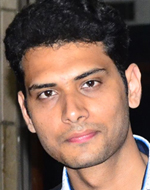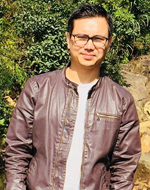Course Content
Introduction
Gamut of computational chemistry and its applications, unfolding the Schrödinger equation, interpretation of the wavefunction and observables, exact and approximate solutions that form the very field of theoretical and computational chemistry.
Semi-empirical methods
LCAO-MO and FMO theories, Hückel and extended Hückel models – examples and calculating matrix elements for “simple real molecules”, orbital interactions in chemistry, discussion on Pople and Dewar methods. The theory sessions are accompanied by practical sessions, hands on computational exercises of calculating and understanding the electronic structure and bonding.
First-principles methods
Hartree-Fock self-consistent method (HF-SCF) – formulation and its detailed derivation, electron correlation, orientation on Post-HF models – MP2 and beyond such as the MCSCF, CI, CCSD, density as an alternate view – Kohn–Sham Density Functional Theory (DFT). Basis sets. Detailed discussion with good examples citing the importance of electron correlation, basis sets to understand and predict the structure, bonding and reactivity of molecules and course of a chemical reaction, hands on computational exercises will complement the theory sessions.
Hands-on computations
Model chemistries using Gaussian software and its utility programs, basics of running quantum chemical calculations – Windows and Linux-HPC environment, preparing the input files and extracting useful knowledge from mountains of computational data from the output files, SCF convergence, geometry optimizations, frequency, IRC, scan calculations, Raman and IR frequency calculations and analysis, UV-Visible spectra, various charge population analysis, chemical bonding, and picturing the molecular orbitals, ONIOM, and solvation models.




